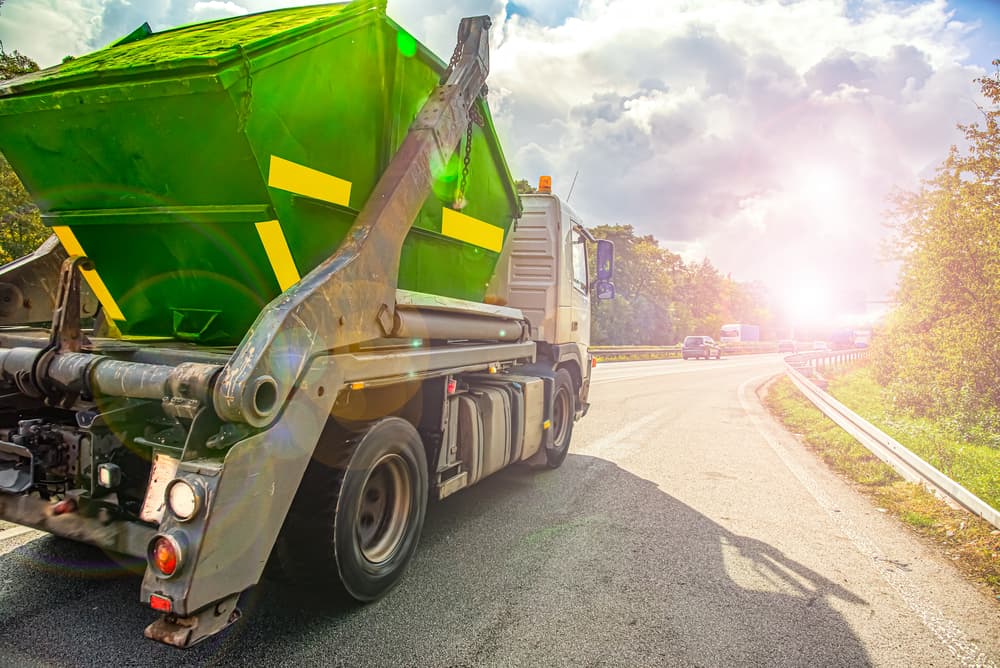Colliding into a garbage or dump truck on a busy Atlanta street sounds like something out of an action-adventure movie, but it’s more like a bad dream. It becomes a nightmare when you wake up in pain with stacks of unpaid bills piling up.
Commercial trucks are giants of the road that can easily run over a car or even a pickup truck with barely a scratch. A dump truck or garbage truck crash is scary and can affect you for a long time.
They aren’t just scary. They’re also confusing, especially when you must file a damages claim. Determining who is at fault and proving it, the value of damages, and all the intricacies of the legal system are complicated and hard to understand.
Atlanta Personal Injury Law Group can help. Our skilled Atlanta truck accident attorneys know how to get through a dump or garbage truck accident in the Atlanta court system. We know the key players and how the system works and are ready to fight for your rights.
Schedule a Free Initial Consultation Today!
What Causes Dump Truck Accidents?

Many people think that trailer and box trucks are the most dangerous on the road, but garbage and dump trucks can be much riskier. They are taller, carry heavy loads in a smaller space, and have loose cargo, like sand, gravel, or garbage, in their beds.
Accidents happen in these trucks due to three primary factors: driver-induced accidents, accidents caused by others, like drivers or maintenance workers, and accidents influenced by weather.
Driver at-fault
A truck driver’s actions might lead to an accident. Behavior such as reckless driving, speeding, disregarding traffic signals and signs, driving under the influence, distracted driving, fatigue, inadequate rest, misjudging distances, and sharp turns can all cause accidents.
Someone else at-fault
A third party is anyone other than the truck driver who can be responsible for causing an accident. Drivers who linger in large trucks’ blind spots or disregard their turn signals while pulling alongside them during a turn cause many accidents.
Other drivers trigger accidents by merging too closely in front of a truck. Truck drivers have limited visibility within the first 20 feet in front of the truck. Merging within that distance places passenger cars at a high crash risk, especially if they slow down. The truck driver might not see the merging car in time to avoid it.
Car drivers sometimes crash into each other, too. Their debris can get pushed into a truck’s path and cause more wreckage.
Investigating these cases is tricky. Proving a dump truck accident claim requires determining factors like the other driver’s fault, any shared responsibility on your part, and whether the truck driver bears partial blame.
A dump truck or garbage truck lawyer will have the experience to ensure you have all the necessary evidence to prove your case. Your job is to heal and regain your strength.
There are many third-party accident possibilities:
- Negligent maintenance workers
- Incompetent inspectors
- Unethical dispatchers
- Negligent truck owners
- Defective parts and vehicle manufacturers
Inclement weather
Weather conditions contribute to road accidents, including the safety of dump truck operations.
Here’s how:
- Rain: Wet weather creates slippery roads, increasing the risk of hydroplaning and losing control.
- Snow and ice: Reduced traction and visibility caused by snow and ice leads to difficulty in maintaining control, causing trucks to slide or jackknife.
- Fog: Dense fog significantly reduces visibility, making it challenging for dump truck drivers to see other vehicles, traffic signals, and road signs, leading to rear-end collisions and other accidents.
- Wind: Strong winds affect the stability of dump trucks, especially when empty or carrying a light load. Crosswinds can push the truck off course, causing rollovers or lane departure accidents.
- Reduced stopping distance: Slippery roads extend the stopping distance for dump trucks. If drivers fail to account for the increased length, they might not stop in time to avoid a collision.
- Reduced braking effectiveness: Wet and icy conditions can reduce brake effectiveness and increase sliding accidents.
- Debris and obstacles: Weather events can create obstacles on the road, which are difficult for dump truck drivers to spot and maneuver, increasing accident risk.
To drive safely in bad weather, dump truck drivers should exercise extra caution, slow down, keep a safe distance, and expect reduced visibility. Regular maintenance and the right tires and safety gear also curb potential accidents.
Proving Responsibility in a Garbage or Dump Truck Accident
Knowing who caused your accident isn’t enough. You must also prove it in court by collecting evidence and presenting a strong case.
Your evidence may include:
- Police reports: Police reports play a vital role in accident investigations, but only if they’re accurate and thorough. Sometimes, police rely too heavily on the accounts of certain parties, which may not reflect the complete truth.
- Witness statements: Witness statements can be unreliable, capturing only part of the event. Accidents happen fast. Witnesses may not have seen the initial moments.
- Statements from other drivers: Statements provided by other involved drivers should be taken cautiously, especially when they have a vested interest in deflecting blame.
- Photographic evidence: Photographs of the accident scene are invaluable. They should show all angles and aspects of the collision.
- Vehicle positions: The specific locations of the accident vehicles are crucial for accurately reconstructing the sequence of events.
- Vehicle and property damage: Assessing the damage to vehicles and nearby property, such as fences, yards, buildings, and barriers, provides insights into the impact and consequences of the accident.
- Skid marks: Examining skid marks and other road markings can help determine factors like speed, braking, and the direction of impact.
- The truck’s black box: Many commercial vehicles have a box that digitally records the movements and experiences of the truck.
The only way to get the most accurate picture of the accident is to consider all these factors in an investigation.
Possible Injuries from Dump Truck Accidents

Garbage and dump truck accidents can cause life-altering injuries due mainly to their size and weight compared to other vehicles.
Some of the more common injuries include:
- Whiplash and neck injuries: Whiplash is a common injury in rear-end collisions that suddenly jerks the head back and forth, causing strain on the soft tissues.
- Back and spinal cord injuries: Truck accidents can cause back injuries ranging from muscle strains to more severe spinal cord injuries and paralysis or permanent disability.
- Head and brain injuries: Traumatic brain injuries (TBIs) can result from the impact of the accident, leading to concussions, hemorrhages, or other cognitive impairments.
- Broken bones: The force behind a truck collision can break bones. Arms and legs are the most often broken bones.
- Internal injuries: The impact can damage internal organs, causing internal bleeding and life-threatening conditions.
- Lacerations: Broken glass and other sharp objects can cause lacerations. It may require stitches or surgery to close the wound.
- Burn injuries: If the accident involves a fire or explosion, anyone in or near the vehicles can suffer burns.
- Amputations: Crushing injuries can cause the loss of limbs or digits.
- Post-traumatic stress disorder (PTSD): Survivors can experience psychological trauma, including PTSD, which has long-lasting effects on mental health.
- Death: Dump truck accidents can result in fatalities, leaving families devastated. Families who suffered losses in a truck accident may pursue compensation through wrongful death claims.
These big trucks can do a lot of damage. Victims might need extensive medical treatment, and rehabilitation, resulting in significant expenses despite a loss of income.
If you or a loved one has suffered life-changing injuries in a truck accident, meet with a dump truck accident attorney to understand your rights and options for seeking compensation.
The Statute of Limitations for Truck Accidents in Georgia
The Official Code of Georgia Annotated (OCGA) §9-3-33 gives personal injury victims in Atlanta a basic timeframe of two years to file their claim. Some cases may have significantly less time to file.
Don’t wait to prepare. Start putting your case together now to avoid any interruptions. Building a solid case takes time and strong evidence. If you wait, you risk losing some or all of your settlement.
State and Federal Regulations for the Trucking Industry
The trucking industry is heavily regulated at state and federal levels to guarantee compliance with safety standards. Following these regulations helps ensure the safe operation of commercial vehicles and prevents accidents.
Violations can result in fines, penalizations, and even the suspension or revocation of a trucking company’s license or privileges. Some of the most relevant regulations in Atlanta include:
Hours of service
The Federal Motor Carrier Safety Administration (FMCSA) enforces hours of service regulations for truck drivers in the US. These laws limit commercial big rig driving time and require mandatory time off between shifts.
These regulations help prevent fatigue and the increased risk of accidents. The FMCSA uses electronic logging devices (ELDs), compliance reviews, and roadside inspections to enforce these standards.
Substance abuse testing
The FMCSA and the Department of Transportation (DOT) require commercial drivers and their employers to acknowledge alcohol and drug testing rules.
All commercial drivers must submit to drug testing before being hired, after a collision, or if suspected of abusing substances.
Weight requirements
In Georgia, the state weight requirements for trucks depend on the number of axles, the distance traveled, and other factors.
Georgia also enforces weight restrictions for bridges and certain roads. Oversize or overweight permits are required for loads exceeding the maximum weight limits.
What Do Georgia Dump Truck Lawyers Do?
Lawyers representing clients in garbage or dump truck accidents provide legal services to protect their interests and seek compensation for their damages.
These services may include:
- Investigation: Lawyers investigate the accident thoroughly, gather evidence, and interview witnesses to establish liability and cause of the accident.
- Legal advice: They provide legal guidance, explaining their client’s rights and options and the legal process of pursuing a claim.
- Communication: Lawyers communicate with insurance companies, the other parties involved, and any other relevant entities on behalf of their clients to negotiate settlements or represent them in court.
- Claims filing: They help clients prepare and file insurance claims, ensuring all necessary documentation is submitted correctly and promptly.
- Negotiation: Lawyers negotiate with insurance companies and other parties to reach a fair settlement that covers their clients’ medical expenses, property damage, lost income, and additional accident-related costs.
- Litigation: If a fair settlement cannot be reached, lawyers may take the case to court and represent their clients in the legal proceedings, arguing their case before a judge and jury.
- Compensation pursuit: Lawyers work diligently to safeguard compensation for their clients. Settlements may include damages for medical bills, pain and suffering, lost wages, property damage, and other losses.
- Advocacy: They advocate for their clients’ rights and interests, ensuring they receive the best possible outcome in their garbage truck accident claims.
- Legal research: Lawyers research relevant laws and precedents to build a strong case and use legal arguments effectively.
- Expert witnesses: They may talk with expert witnesses, such as accident reconstruction specialists and medical experts, to provide professional testimony supporting their clients’ claims.
- Documentation and paperwork: Lawyers handle the complex paperwork and legal documentation associated with garbage truck accident claims, reducing the burden on their clients.
Lawyers are advocates and legal representatives, helping their clients navigate the legal complexities of garbage truck accident cases and seeking the compensation they deserve for their injuries and losses.
The knowledgeable Atlanta personal injury attorney at Atlanta Personal Injury Law Group is ready to file your claim and fight for your due compensation. To discuss your options, call (833) 285-9467.




























